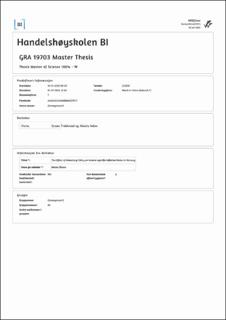The Effect of Monetary Policy on Income-specific Inflation Rates in Norway
Master thesis
Permanent lenke
https://hdl.handle.net/11250/3036148Utgivelsesdato
2022Metadata
Vis full innførselSamlinger
- Master of Science [1621]
Sammendrag
The goal of this master thesis has been to find out whether monetary policy has heterogeneous effects across the income distribution through the inflation channel in Norway. We find that the households at the bottom 5 percent of the income distribution face less frequent price changes relative to the middle 40-60 percent and top 1 percent income groups. When analyzing the volatility of price changes, our results are divided depending on the level of aggregation of consumption categories. We use a structural vector autoregressive (VAR) model to investigate the effect of monetary policy on income-specific inflation rates. The impulse response functions of the households at the top 1 percent of the income distribution react the most to a monetary policy shock, while the bottom 5 percent react the least. Hence, the magnitude of the responses is increasing with income. All in all, the results of our study indicates that monetary policy might affect income-specific inflation rates heterogeneously.
Beskrivelse
Masteroppgave(MSc) in Master of Science in Business, Economics - Handelshøyskolen BI, 2022
